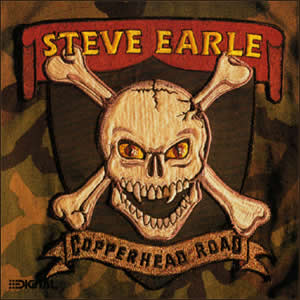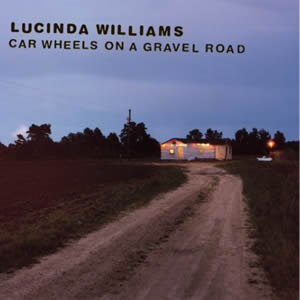Copperhead Road by Steve Earle
Buy Copperhead Road Steve Earle has always woven in and out of the outlaw country genre exploring different sectors of musical territory. Back in 1988, Earle took his first major turn into what […]

Buy Copperhead Road Steve Earle has always woven in and out of the outlaw country genre exploring different sectors of musical territory. Back in 1988, Earle took his first major turn into what […]

Buy Car Wheels On a Gravel Road Car Wheels on a Gravel Road, the fifth studio album by Lucinda Williams, is a highly acclaimed, awarded and influential 1998 record. In fact, several have […]